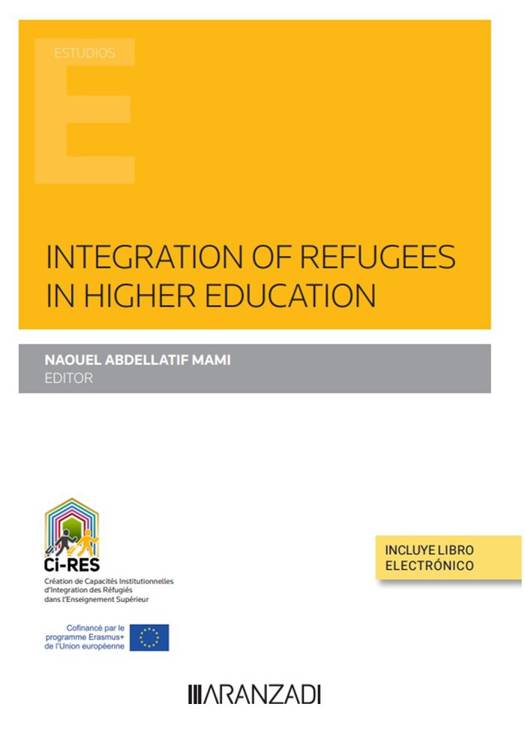
Je cadeautjes zeker op tijd in huis hebben voor de feestdagen? Kom langs in onze winkels en vind het perfecte geschenk!
- Afhalen na 1 uur in een winkel met voorraad
- Gratis thuislevering in België vanaf € 30
- Ruim aanbod met 7 miljoen producten
Je cadeautjes zeker op tijd in huis hebben voor de feestdagen? Kom langs in onze winkels en vind het perfecte geschenk!
- Afhalen na 1 uur in een winkel met voorraad
- Gratis thuislevering in België vanaf € 30
- Ruim aanbod met 7 miljoen producten
Zoeken
€ 50,95
+ 101 punten
Omschrijving
The book «Integration of Refugees in Higher Education» is the result of a hard work over more than three years as part of a capacity building project under the Erasmus + program, funded by the European Commission and coordinated by Mohamed Lamine Debaghine Sétif 2 University, in Algeria. Ci-RES, «creation of institutional capacities for the integration of refugees in higher education» is a pilot initiative which aims to reformulate and/or create organic and institutional laws around the question of refugees in order to support them in their process of integration into the Algerian higher education system. The book brings together the research work of the Ci-RES consortium composed of researchers from Algeria, Spain, Italy and France. It touches on the various legal, pedagogical, learning-by-service aspects but also the development of digital, intercultural and professional competences. The content provides an understanding of international and national refugee integration mechanisms. It analyzes the strengths, weaknesses, opportunities and threats related to the integration of this category of the population and proposes an appropriate methodology, developed on the basis of good national practices allowing the reception, care and development of refugees through a human rights-based approach.
Specificaties
Betrokkenen
- Auteur(s):
- Uitgeverij:
Inhoud
- Aantal bladzijden:
- 512
- Taal:
- Engels
Eigenschappen
- Productcode (EAN):
- 9788411250900
- Verschijningsdatum:
- 3/01/2022
- Uitvoering:
- Boek
- Afmetingen:
- 165 mm x 235 mm
- Gewicht:
- 736 g

Alleen bij Standaard Boekhandel
+ 101 punten op je klantenkaart van Standaard Boekhandel
Beoordelingen
We publiceren alleen reviews die voldoen aan de voorwaarden voor reviews. Bekijk onze voorwaarden voor reviews.









